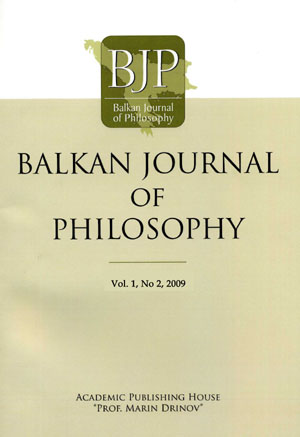Non Sequitur – Some Reflections on Informal Logic
Non Sequitur – Some Reflections on Informal Logic
Author(s): Danilo ŠusterSubject(s): Philosophy
Published by: Институт по философия и социология при БАН
Keywords: informal logic; argument; cogency; scientific methodology; everyday reasoning
Summary/Abstract: Some general, programmatic points about informal logic are addressed. The informal approach to argument analysis faces serious foundational problems which have been recognized by its practitioners – but informal logic has yet to come together as a clearly defined discipline. Another problem is the dilemma of the dialectician (Sextus Empiricus): informal logic is either trivial or powerless on its own (field expertise is needed). According to Johnson and Blair the central notion in theory of argument is cogency which replaces soundness. An argument is cogent if and only if (i) its premises are rationally acceptable, (ii) its premises are relevant to its conclusion and (iii) its premises provide sufficient reason to accept the conclusion. I propose to understand cogency as a broader notion that includes deductively valid inferences. The criteria of cogency are simply the basic ideals of scientific methodology which requires a respect for available evidence and “reasonable” inference, an awareness of alternatives and a willingness to modify or reject those beliefs that fail to conform to the evidence. Informal logic in the sense of elementary scientific methodology is concerned with proper reasoning and not with proper dialogue. Informal logic involves non-trivial argumentative skills and abilities applied to the subject area and accessible to every normally intelligent and educated person.
Journal: Balkan Journal of Philosophy
- Issue Year: I/2009
- Issue No: 2
- Page Range: 91-102
- Page Count: 12
- Language: English

